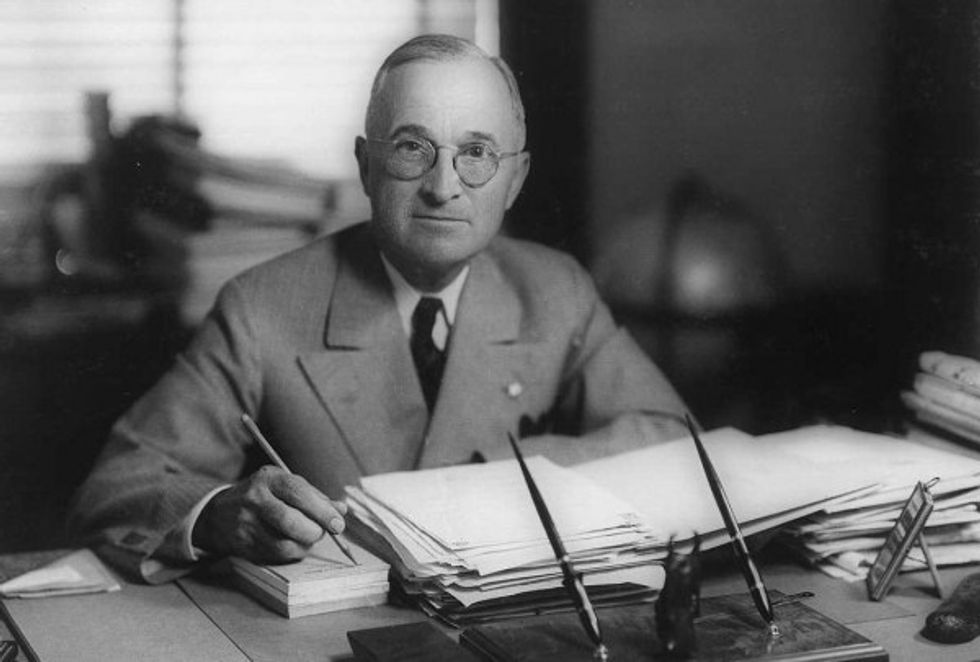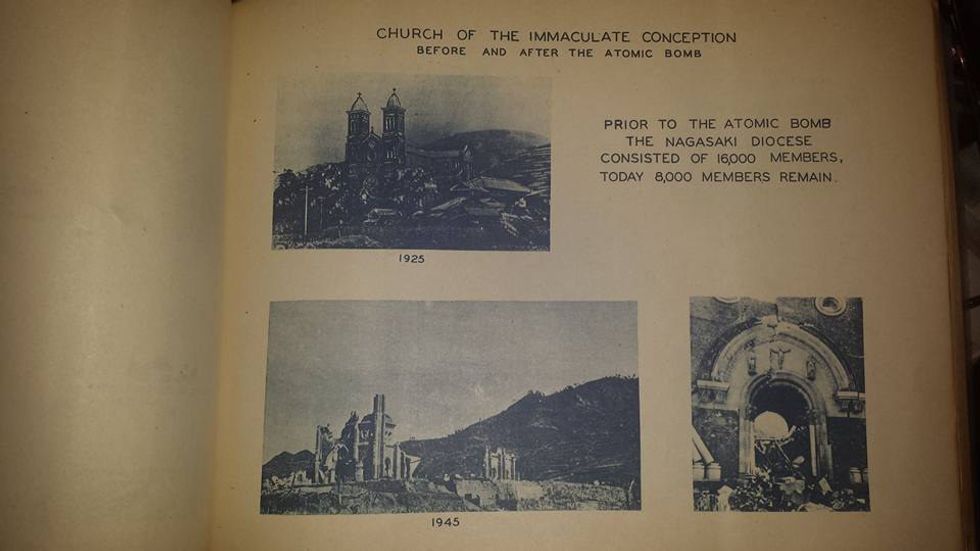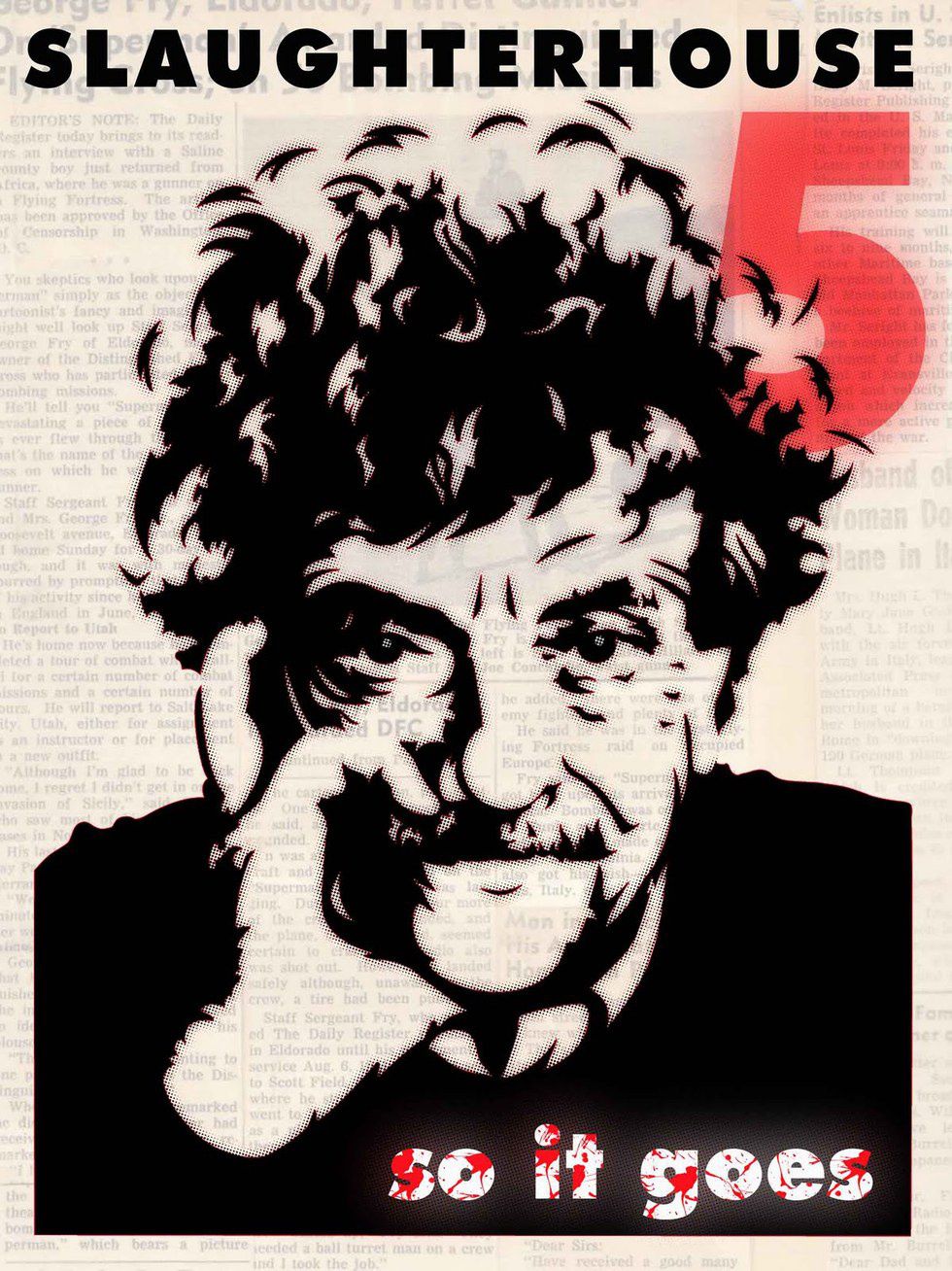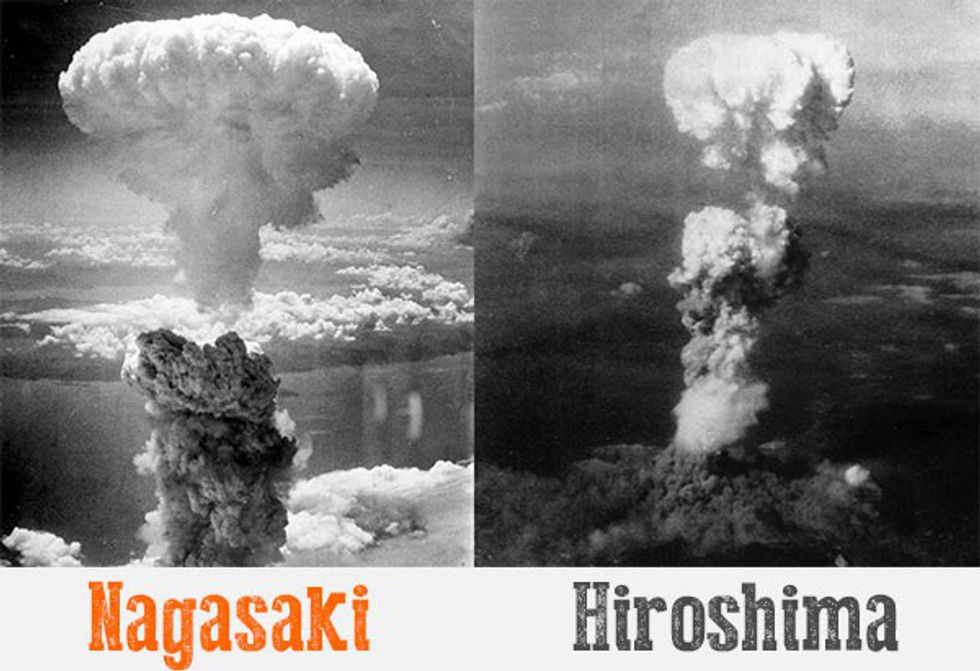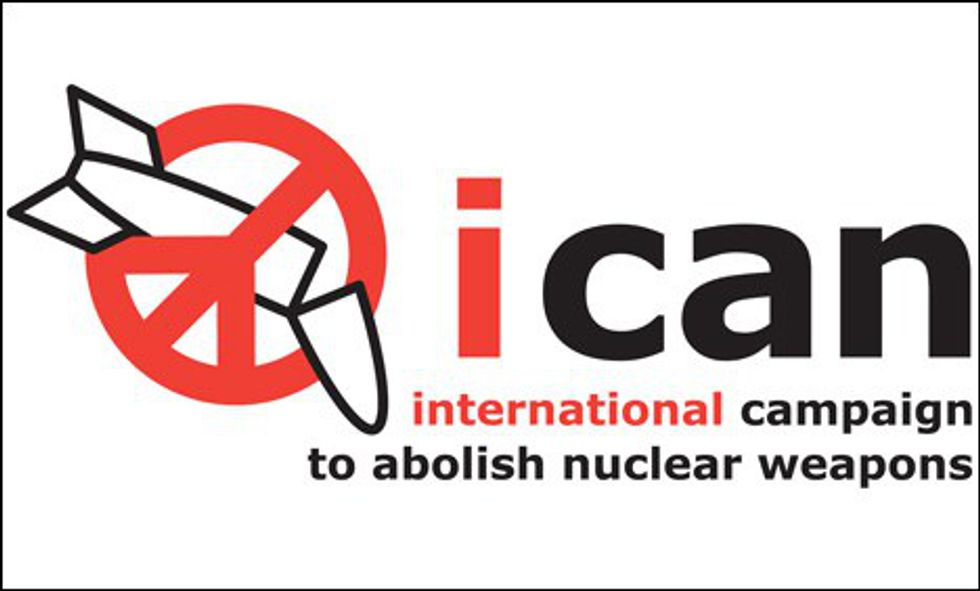Last week, President Obama was the first sitting President ever to visit the city of Hiroshima, the location where the U.S dropped the initial atomic bomb on Japan at the end of World War II in 1945. A couple days after the initial bombing, another was dropped on the city of Nagasaki. It is the first and last time in human history where nuclear weapons were used in warfare. We, as a nation, have been fed the idea that this was a justifiable act to end the war. But it's much deeper than that; it led to the expansion of an empire.
The United States had legitimate reasons in their decision to go into Germany, Italy and the Pacific to stop dictators from expanding their territory illegally (which often involved killing many innocent civilians). The atrocities of the Axis Powers were horrible, but the winner of a war must be held accountable for war crimes as well. In 1945, after four long years of fighting, the United States wanted to end the war. President Harry Truman had three main choices put on his desk: a full-scale invasion of Japan with U.S forces, a naval blockade starving Japan out or dropping this new invention called the atomic bomb.
My grandfather, Forrest Pierce, graduated Haverford High School in 1943 and was eager to go out and serve his country as a Marine. He enlisted, went through boot camp, was driven to California to go off to the Philippines, which had been taken by the Americans from the Japanese in 1944. From there, they would be shipped off to be a part of Operation Downfall — the invasion of mainland Japan. Now, the estimated number of Americans that would be a part of this invasion is 5 million troops. They would be joined by about one million British soldiers and would clash with around 4.5 million Japanese troops and 32 million civilians, who were ready to fight to the death for their emperor, Hirohito. This never happened, though, because the U.S dropped the bombs on Hiroshima and Nagasaki. So, many Americans believe that dropping the bombs was the right decision since they are related to a generation of troops who could have died in this invasion. For years, no one questioned this idea. I believed in everything that my father would say about it, “If it wasn’t for those bombs being dropped, I wouldn’t be here and you wouldn’t be here.” That’s a pretty bold statement that makes you not want to question the decision. If you do, you are almost considered a traitor to your country. At this point, if you do question it, it's almost as bad as me spitting on my grandfather's grave.
Below is my Grandfather with his parents as well as some pictures he took from Nagasaki.
There were many controversial acts the Americans did during World War II (like the Dachau Massacre and massive accounts of rape at the Battle of Okinawa). People must be held accountable for war crimes, but sometimes in the heat of battle, horrific things will happen. Individual soldiers fighting within battles made those events happen. There are decisions that were made at the top level of the military and government that I believe were power moves against the Soviet Union during World War II. These events are war crimes that people don’t seem to see and that our history books feel are justifiable. Hiroshima and Nagasaki, the bombing of Tokyo and the bombing of Dresden were a part of these power moves. At the end of the European Theater of World War II, the Allies were doing bombing runs over Germany, in attempts to end the war in Europe quicker. Instead of bombing military targets, though, they started to bomb civilians. One of those targets was the medieval German city of Dresden. This city was filled with refugees escaping from other areas, places that either the allies had bombed or invaded. American-led bombings destroyed this city, killing massive amounts of people. I never learned about this in my history classes, until my junior year of high school when we read Kurt Vonnegut’s “Slaughterhouse Five.” The city was not a strategic military site to bomb, and the allies knew that. This is a trend I will keep talking about throughout this piece, and something I think people don’t want to understand because they don’t want to accept it.
The western world has been at war with communism ever since "The Communist Manifesto" was created. Going to bounds that are too low for America to hold to and destroying these events from the history books in the name of purity. The ignorance of our actions will lead us via the path of the Roman Empire.
This war has been fought domestically with business owners accusing union leaders of being communists and our foreign policy where in 1918 the World War I allies of Britain, France, United States and many others went into Russia after the Bolsheviks took over the country from the czar. If you don’t know this, after the Bolsheviks (Russian communists) took over Tsar Nicholas II Russian empire, who was at the time on the allies’ side fighting the central powers (Germany, Austria-Hungary and Turkey). When the Bolsheviks won they claimed neutrality in the war. This upset the allies and when allied troops were sent to Siberia the three main goals were to stop the Bolsheviks from getting supplies the allies gave to the Russian Empire during World War I, get the Czechoslovak Legions out of the country and to influence locals to fight against the Bolsheviks. This is the only time ever that the Soviet Union and the United States were in direct conflict which each other. Later on, in the 20s and 30s, the Japanese would fight a bunch of border wars with the Russians. We have been at war with Communist Russia ever since World War I.
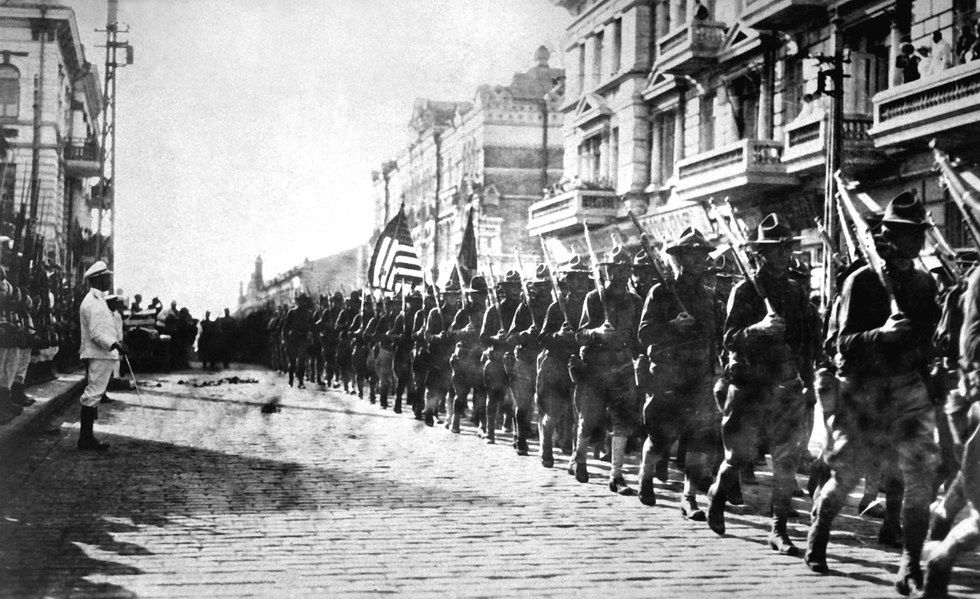
Truman was advised by most of his military advisors not to drop the bomb. Here are some quotes from famous Commanders during World War II to not do it:
Dwight D. Eisenhower the commander of all the Allied forces in Europe said in an interview with Newsweek in 1963 he stated “...the Japanese were ready to surrender and it wasn't necessary to hit them with that awful thing."
General Douglas MacArthur’s (the commander of the American forces in the Pacific) consultant Norman Cousins said, "MacArthur's views about the decision to drop the atomic bomb on Hiroshima and Nagasaki were starkly different from what the general public supposed. When I asked General MacArthur about the decision to drop the bomb, I was surprised to learn he had not even been consulted. What, I asked, would his advice have been? He replied that he saw no military justification for the dropping of the bomb. The war might have ended weeks earlier, he said, if the United States had agreed, as it later did anyway, to the retention of the institution of the emperor."
Ex-President Herbert Hoover wrote in detail of much he hated the decision stating "The use of the atomic bomb, with its indiscriminate killing of women and children, revolts my soul." He would also say "...the Japanese were prepared to negotiate all the way from February 1945...up to and before the time the atomic bombs were dropped; ...if such leads had been followed up, there would have been no occasion to drop the [atomic] bombs."
The favorite quote is from Curtis LeMay, a man who led terror bombings on civilians in both Europe and the Pacific. He led the bombing of Tokyo in 1945 which led to the deaths of more people than in Hiroshima and Nagasaki combined. This is a man who was George Wallace’s vice presidential nominee in 1968. If you don’t know who George Wallace is, he was the Governor of Alabama in the 1960’s and ran for president multiple times trying to fight for segregation. Wallace’s motto was, “Segregation now, segregation tomorrow, segregation forever.” LeMay was a well-known racist, and he thought that the bombing of Hiroshima and Nagasaki were wrong, "The war would have been over in two weeks without the Russians entering and without the atomic bomb. The atomic bomb had nothing to do with the end of the war at all."
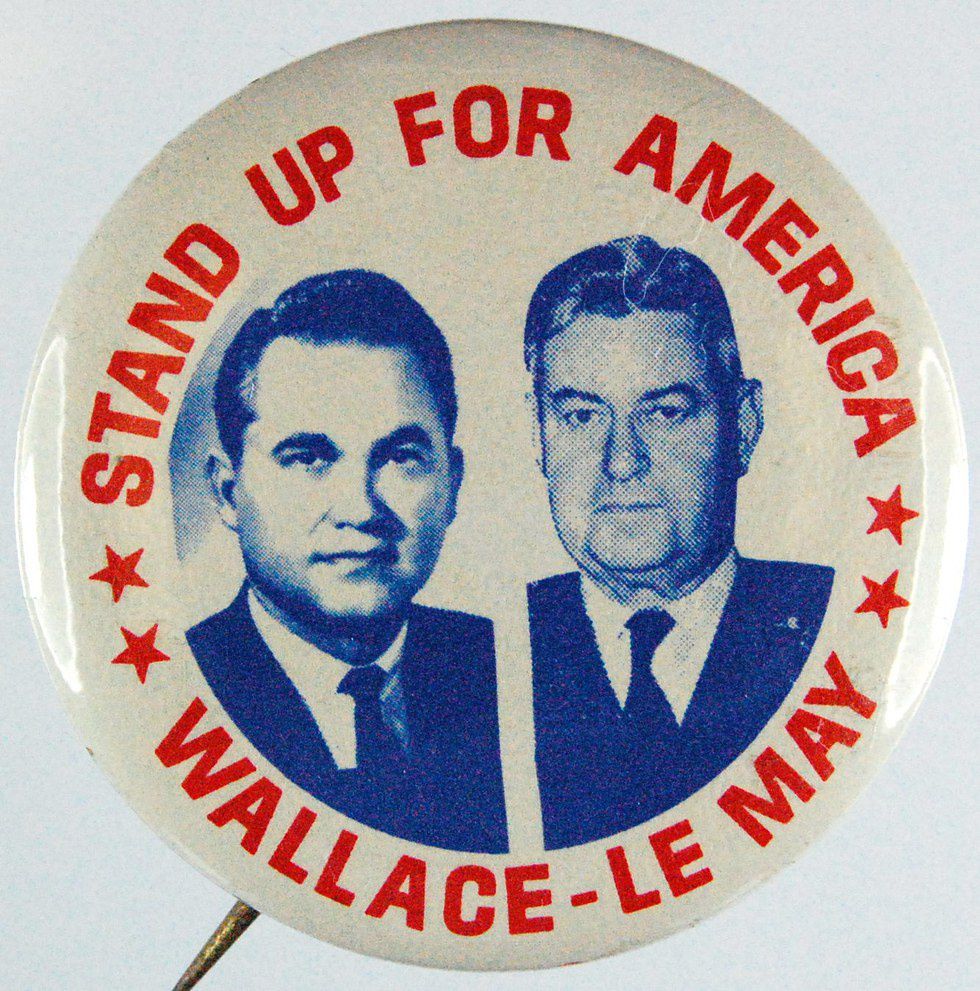
Many Americans have been criticizing President Obama for even going to Japan. They even accused him of apologizing, which he didn’t do. I wanted the President to apologize to the people of Japan, though. They did not deserve this at all. Many people said that since the current Japanese Prime Minister, Shinzo Abe, has not apologized for Pearl Harbor, then we should not apologize for Hiroshima and Nagasaki because it will show weakness. It’s not showing weakness, though. Healing the wounds of the past makes allies stronger, and we are very close allies with Japan. Ever since the bombings of Hiroshima and Nagasaki, U.S. foreign Policy, in my opinion, has taken on Machiavelli's philosophy of “the ends justify the means,” which is completely incomprehensible and is why America has been called an empire ever since World War II. The idea that we can wipe out thousands of people in a split second scares the hell out of many. We have tensions with countries that have nuclear weapons that we don’t like and threaten war with them. Who are we to dictate that if we are the only country ever to use it? In the face of conflict, you cannot play the game of "my country right or wrong." Or else how are we better than our enemies? We must rid the world of all nuclear weapons and not live in a world full of fear. I am happy that President Obama called for the abolition of nuclear weapons in his Hiroshima Speech, even though he will never fulfill it. There is no shame in saying sorry to our current ally for god's sake. Around 85 percent of the American population after World War II believed that the bomb ended the war. It's now down to around the 50 to 60 percent range. I want that percentage to be even lower and creating a safer world without nuclear weapons for our children and grandchildren. We must teach this event differently in our classrooms.





